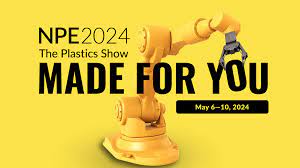After commenting that in the last 10 years Mexico has worked on market diversification and that as a result South America, Brazil, Argentina and Colombia represent the second most important market for the automotive sector, after the United States, the Executive President of the National Auto Parts Industry (INA), Óscar Albín Santos referred to this state, which, he said, is attractive for companies not only because of its geographical location, but also because of the quality of the labor force it offers.
"It is very eloquent to know that Queretaro, despite the fact that it does not have a tractor factory and production of light cars or an important production of heavy cars, has been characterized by the development of factories and auto parts manufacturing companies and that is because of its location; it is very centrally located, within reach of all assembly plants and also has a qualified workforce that graduates from various technical schools such as Conalep (sic)," the executive explained.
Querétaro -with around 300 auto parts manufacturing companies (transmissions, gears, transmission cases for transportation units, safety and electrical components, brake systems, etc.) out of the 1,200 that exist in the country- represents 10% of the local Gross Domestic Product (GDP) and generates close to 45,000 direct jobs, according to the Secretary of Sustainable Development of the Government of Querétaro (Sedesu), Marcelo López Sánchez.
Queretaro will host the Automotive Meetings event, an international and strategic business meeting for the automotive industry, which according to the Director of the Mexican Association of the Automotive Industry (AMIA), Fausto Cuevas, will produce around 4 million automobiles by 2017 . Given this, the event that will bring together more than 400 international companies, mainly from Europe, seeks to attract Foreign Direct Investment (FDI) with the attraction of Tier 2 and Tier 3 automotive component manufacturing plants.
"It is very important that we can expand local supply with manufacturing in Mexico, we need reliable suppliers that have sufficient capacity for development and growth that have the capacity to supply the local and foreign market," explained Fausto Cuevas after commenting that in the case of the terminal industry, 82% of what is exported in the country is exported.
He reiterated that the areas of opportunity are for the sector of parts and components of Tier 2 and Tier 3 levels in the automotive sector, since in these areas $30 billion dollars (mdd) are imported annually.
He said that this figure can be substituted with local manufacturing, but, he clarified, "this does not mean that these are absolutely Mexican companies, but they can be co-investments and technology, in short. There are a series of schemes that can help us to complement the automotive chain that we currently have".
Mexico will not attract Tier 1 suppliers
He pointed out that the AMIA "does not expect additional growth with respect to new companies that we could attract Tier 1 suppliers, which directly supply the vehicle supplier manufacturer".
Speaking about the opportunities in Mexico in the supply chain, Eaton's SMC Regional Manager for Latin America and the Caribbean, Hector Soto Aduna after highlighting that Eaton Corp in May 2012 acquired the electrical equipment manufacturer Cooper Industries, said that Eaton went from having 13 manufacturing plants to having 23, which has generated a greater need for suppliers for the U.S. company.
Each year alone, Eaton buys 1.2 billion dollars of materials that are incorporated "in our production process to later access our final products". Of this figure, said Soto Aduna, only here in Mexico 22% of these inputs are acquired, which "tells us that Eaton represents an opportunity for suppliers in the supply chain of 900 million dollars a year (mdd).
Hector Soto Aduna, who has worked in the development of suppliers hand in hand with executives from Robert Bosch and Continental through the National Council of Tractor Companies (CNET), created in 2009, said that previously only had a coverage of 3% of Mexican suppliers and said that the goal for 2016 is "to reach 75% of local integration, a very aggressive goal and we have to work to achieve it".
He added that by strengthening the value chain, Eaton -which will participate in the Automotive Meetings- will be a more competitive company and will have access to more market niches such as Central and South America.
Stephone Castet, President and CEO of abe, a French company, organizer of Automotive Meetings, which has operations in Asia, America and Europe, pointed out that this is not a local or national event, but an international event that will be attended by companies from countries such as Austria, Korea, Canada, among others . He explained that the organization of the event includes conferences and business meetings with buyers and suppliers.
He emphasized that the methodology of the Business to Business event will be carried out in four steps: Conferences, Business Meeting, Registration of participants including needs and supplier services. Participating companies will have access to the event's catalog, which will show the supply opportunities available, and each company will be able to request meetings with potential suppliers. It should be noted that the participating companies will receive, a week before the event, a final and established agenda, whose objective of this scheme is that all companies have a meeting to be face to face business relationships to identify new customers or potential customers.
Source: Vanguardia Industrial (Silvia Ortiz and Berenice Valdés)

























